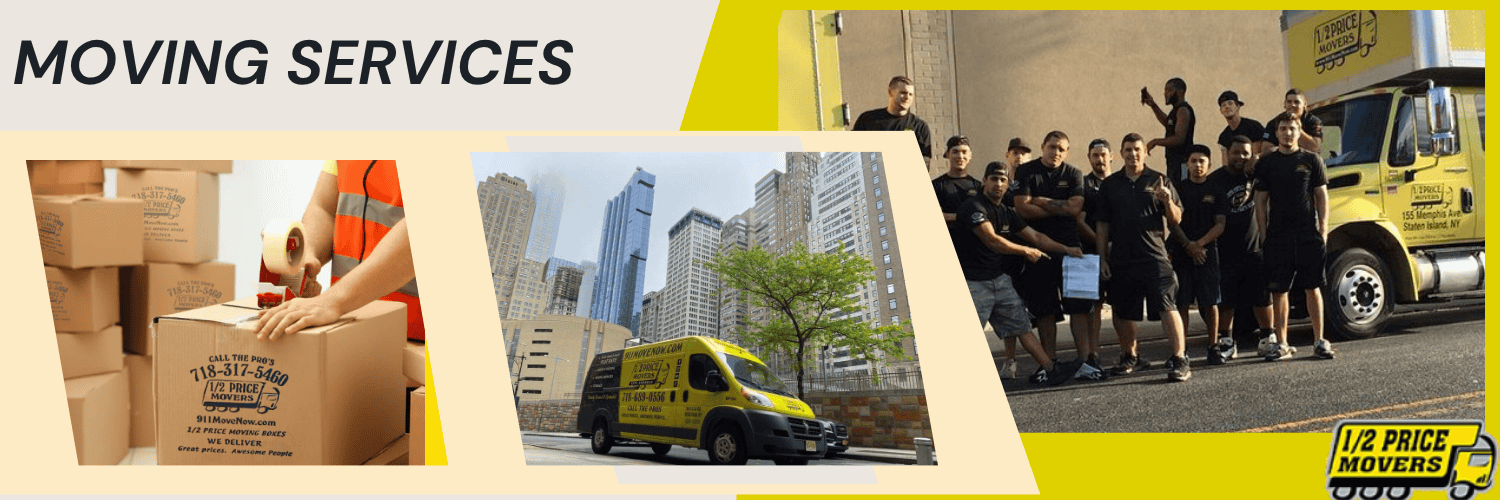How to Avoid Moving Scams?
Moving to a new place should feel like a fresh start—new neighborhood, new routines, maybe even a new favorite pizza spot. But let’s be honest: the actual process of moving can be a lot. Between organizing, packing, coordinating schedules, and trying not to lose your mind in a sea of cardboard boxes, the stress can quickly pile up. And then there’s the lurking threat that most people don’t think about until it’s too late: moving scams. These aren’t just rare horror stories—they happen more often than you’d think. Even people who book the best movers in NYC sometimes get tricked by companies that look legit but are just waiting to disappear the moment your stuff is on the truck. The good news? You don’t have to be a moving pro to protect yourself. All it takes is a little awareness, some practical steps, and knowing what red flags to look out for. In this guide, we’ll walk you through exactly what these scams look like, how to spot them early, and how to avoid becoming another cautionary tale.
Moving Scams: What a Moving Scam Looks Like

Not all scams scream “danger” from the start. Some movers come across as super helpful and professional—until you’re locked in. Then the problems begin. Here’s how it usually plays out:
- They offer a surprisingly cheap quote, but once your things are on the truck, they suddenly “discover” extra charges.
- They ask for a large deposit upfront and never show up on moving day.
- They take your stuff and won’t give it back unless you pay them more money—way more.
- They don’t give you anything in writing, so their promises mean nothing when you try to hold them accountable.
- Worst case: they vanish completely, and you’re left with an empty apartment and a disconnected phone number.
Scammers rely on the chaos of moving. They know most people don’t have the time—or the energy—to question everything. But you can outsmart them by being just a little more cautious.
Moving Company Scams: Red Flags to Watch Out For
Moving company scams often involve low initial quotes, last-minute price hikes, or holding belongings hostage—watch for vague contracts, no physical address, and demands for large upfront payments.
1. No Walkthrough, Too Cheap? Walk Away
A legit moving company will want to see what you’re moving. That could be a quick visit or even a FaceTime call—but they’ll need to check stairs, heavy furniture, elevators, etc. If they offer a price without asking for details, they’re not being honest. We all love a good deal, but a quote that’s much lower than others? That’s a red flag. You could be looking at hidden fees or worse, someone planning to ghost after pocketing your deposit.
2. Demand a Contract, Question Big Deposits
A handshake and a smile don’t mean much if things go south. A proper contract should list dates, services, pricing, and what happens if anything goes wrong. No contract? Walk away. Think of it like insurance for your move—when it’s all in writing, you know exactly where you stand. Paying a small deposit to lock in your move date is normal. But if they ask for 50% up front—or insist on cash or wire transfers—you’re probably being set up. If someone asks for that much trust before lifting a single box, it’s probably time to move on.
3. Sketchy Reviews? No License? Red Flag
In the U.S., all interstate movers need a USDOT number from the FMCSA. You can look this up in a few clicks. If they don’t have it—or dodge the question—don’t take the risk. Would you let someone without a license drive your car across state lines? Same logic here. Check reviews on Google, Yelp, and the BBB. If there’s a consistent pattern of complaints—or too many overly perfect 5-star reviews that feel fake—trust your gut. If other customers had a bad feeling—and turned out to be right—take their warning seriously.
How to Protect Yourself from a Moving Company Scam?

To protect yourself from a moving company scam, research the company thoroughly, verify licensing (like USDOT), get written estimates, avoid large upfront payments, and read all contracts carefully before signing.
1. Hire Smart: License & Insurance Matter
This is your stuff we’re talking about—treat it like it matters. Get at least three estimates. Pay attention to how the company communicates its message. Are they transparent? Do they seem rushed or vague? Also, ask around in your neighborhood or check local Facebook groups. Personal referrals go a long way. Use the FMCSA website to verify that your mover is properly licensed. And ask about insurance coverage. Reputable movers won’t hesitate to provide proof and explain their coverage.
2. Fixed Price? Read Everything First
This kind of estimate guarantees you won’t pay more than the agreed amount, but if the job ends up being easier, you might pay less. Bonus points if they give a breakdown of every charge, especially for extras like packing services. Don’t just skim. Make sure the contract includes:
- What’s being moved
- Pickup and delivery windows
- How and when you’ll be billed
- What happens in case of delays or damage
If something doesn’t make sense, ask until it does.
3. No Full Upfront—Record Your Stuff
Use a credit card for extra protection and never pay the full amount until you receive the item. Avoid movers that want large cash payments or wire transfers. It’s your money—don’t hand it over until you know your belongings are safely where they’re supposed to be. Wondering how much to tip movers? While it’s not mandatory, tipping is a thoughtful way to show appreciation for a job well done, especially when your movers handle everything with care and professionalism. Take pictures of your things, especially valuables. Keep a list of what’s in each box. If something gets lost or damaged, having proof helps with claims. It may feel tedious now, but future-you will be so grateful if something goes missing and you need to back it up.
4. Who’s Handling It? Choose Family-Owned
Will the crew be company employees or subcontractors? Do they do background checks? In scam-heavy areas like NYC, especially when dealing with a moving company scam, you’ll want to know exactly who’s showing up at your door. There’s something different about family-owned & operated movers. They tend to be more flexible, more careful, and way more invested in making sure you’re happy. These folks often live in your area, and their reputation is everything. Plus, they’re more likely to help you plan, offer honest prices, and even guide you with a detailed timeline for moving house.
What to Do If Scammed by a Moving Company?
If you’re scammed by a moving company, document everything, file a complaint with the FMCSA and BBB, report to your state’s consumer protection agency, and consider legal action or small claims court to recover losses.
Save Everything and Report the Scam
Emails, texts, contracts, photos—keep them all. Write down anything said over the phone, too. It might feel excessive, but having everything documented gives you power if things go wrong. File complaints with the FMCSA, your state’s consumer agency, and the Better Business Bureau. If your items are being held hostage, call local police. Speaking up might help you—and it could save someone else from falling into the same trap.
Share Your Story and Talk to a Lawyer
Your experience can help others. Leave detailed reviews with company names, what went wrong, and how they responded (or didn’t). Being honest online isn’t just venting—it’s paying it forward for the next person. You don’t need to hire a big firm. Even a consultation with a small claims advisor or consumer rights lawyer can push scammers to back off. A little legal pressure can go a long way when someone’s playing games with your belongings.
Final Word on Choosing Reputable Movers

When something feels off, it usually is—and that’s your gut trying to help you out. Trust it. Good moving companies won’t dodge your questions or hesitate to explain how things work. Whether you’re hiring the best residential movers in NYC or a small neighborhood crew, the good ones have a few things in common: they’re licensed, insured, transparent, and always upfront with their process. Here’s the best part: you don’t need to be a moving expert to avoid scams. You just need to be alert, ask the right questions, and give yourself a little breathing room to make informed decisions. Don’t let the chaos of moving distract you from your instincts—if something doesn’t feel right, there’s probably a better option out there.
And if you’re still not sure where to begin, we’re more than happy to help. Give us a call today at (718) 689-0556 or fill out the form on our website. We’ll give you straight answers, walk you through the process, and help you feel confident about your move—no pressure, no pushy sales pitch, just real people who care about getting it right.

